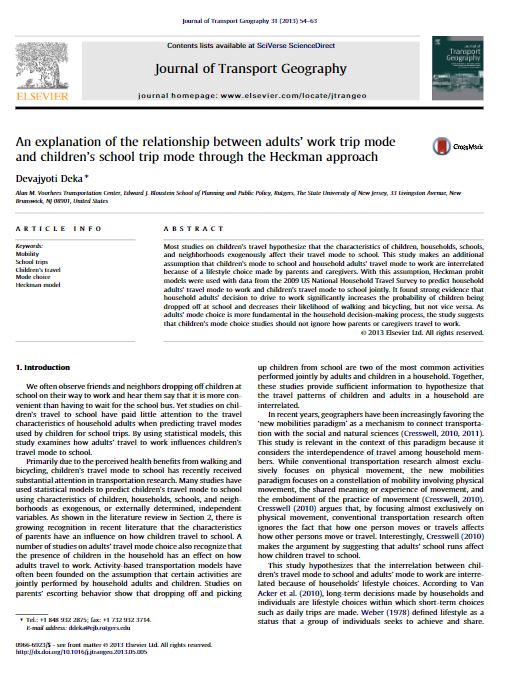Abstract
Most studies on children’s travel hypothesize that the characteristics of children, households, schools, and neighborhoods exogenously affect their travel mode to school. This study makes an additional assumption that children’s mode to school and household adults’ travel mode to work are interrelated because of a lifestyle choice made by parents and caregivers. With this assumption, Heckman probit models were used with data from the 2009 US National Household Travel Survey to predict household adults’ travel mode to work and children’s travel mode to school jointly. It found strong evidence that household adults’ decision to drive to work significantly increases the probability of children being dropped off at school and decreases their likelihood of walking and bicycling, but not vice versa. As adults’ mode choice is more fundamental in the household decision-making process, the study suggests that children’s mode choice studies should not ignore how parents or caregivers travel to work.
